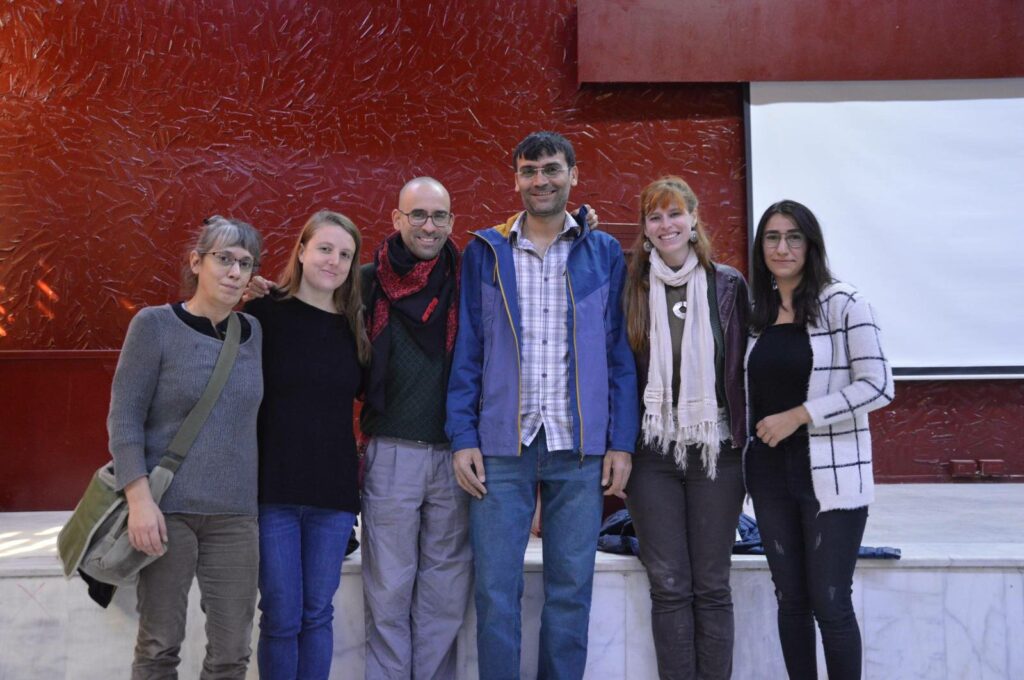On 23 November 2021 the University of Rojava showed a film titled “Rojava and Catalonia” about a delegation from Catalonia that came to Rojava with the intentions of establishing international connections and learning about the Autonomous Administration. In order to better understand the activities of the Autonomous Administration, the delegation visited the major cities in the region and important sites such as the Hol and Waşokanî IDP camps, Jinwar, and the University of Rojava. The delegation was able to see a relatively full picture of Rojava and the activities of the Autonomous Administration; from the destruction caused by the war against ISIS and the continuing issues in the Hol camp to the unique revolutionary developments and projects taking place in Rojava.

The history and political situation of Catalonia is often compared to that of Rojava. The people of both places have long struggled against their respective hegemonic states and fascism which in both places arrived under the guise of religion; and the people have often looked for radical solutions in their struggles. Also, the participation of internationalist revolutionaries and volunteers in the struggle against fascism is something that connects the struggle against Franco’s regime and the struggle against Daesh and Turkish fascism. In this way the people of Catalonia and Rojava are able to relate in a unique revolutionary manner.
The fact that the colonial reality of Kurdistan is being solved in a democratic way, without a nation-state, serves as a model for not only the Middle East but other regions of the world that suffer under similar regimes. Catalonia, existing under the Spanish state along with other people’s whose existence is not acceptable in a centralized nation-state system, is subjected to much of the same historical repression as Kurdistan.
The Spanish state, which oppresses and forces under its control different cultures, languages and ethnicities, as in Catalonia or the Basque Country, has not sufficiently dealt with its fascist past until today. Democratic culture is something that springs from deep within society and has no basis in the history of the state. This is also something in which Rojava and Catalonia are very similar, the construction of a democratic understanding from within society. The conditions for democratic confederalism are therefore also present on the Iberian Peninsula, including in Catalonia.
This makes even more meaningful the fact that in September 2021, the parliament of Catalonia officially recognized the Autonomous Administration as a legitimate entity.
You can find the Film “Rojava and Catalonia” here: https://youtu.be/S3PBnxQuVrg